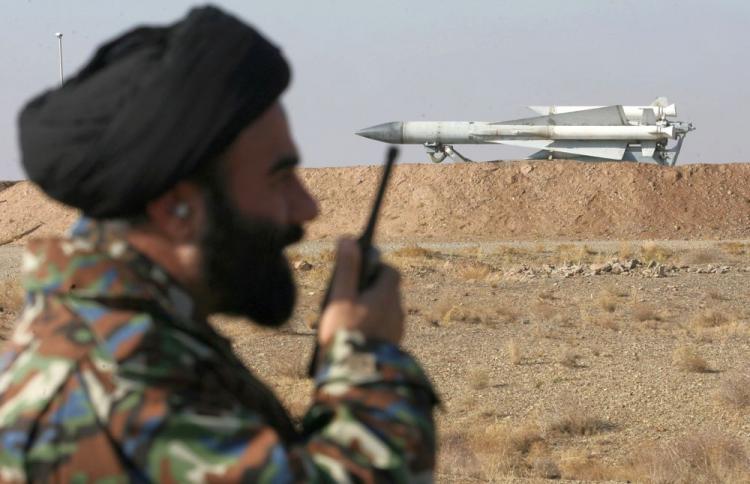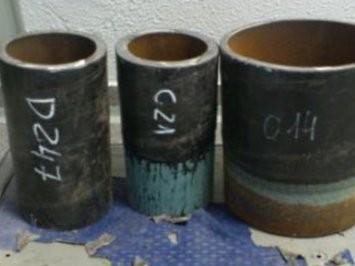Iran test-fired a long-range missile on Wednesday Dec. 16, Iran state media reported. TV footage shows a test fire of a Sajjil-2 surface-to-surface rocket with a range of 772 miles, capable of reaching Israel or U.S. bases in Southeastern Europe.
The Sajjil missile was first tested on May 20 this year. The current upgraded version has a better navigation and targeting system, as well as lower detection capabilities.
British Prime Minister Gordon Brown addressed the issue at the climate conference in Copenhagen, saying, “This is a matter of serious concern to the international community and it does make the case for us moving farther on sanctions.”
The missile launch comes just a day after the U.S. House of Representatives approved legislation to impose sanctions on foreign companies that help to supply refined gasoline to Iran. As Iran possesses just one domestic refinery, it has to buy gasoline from abroad, although the country has the third-biggest oil reserves in the world.
The international community is seeking the institution of trade sanctions against Iran to convince the regime to stop pursuing its nuclear weapons program.
From 2006 to 2008, the U.N. Security Council has already imposed three sets of sanctions forcing Iran to halt its uranium enrichment, however Iran refused to comply. According to the head of the Israeli military intelligence, Amos Yadlin, Iran currently has enough materials to build a nuclear weapon on its own.
The U.S. administration announced on Monday that the meeting of six powers, scheduled on Dec. 18 at the Climate Change Conference in Copenhagen, or on Dec. 22 in Brussel, will be replaced with a conference call at a later date. The U.S., Russia, Britain, France, China and Germany will negotiate sanctions or possible military strike against Iran, if Iran does not give up its nuclear plans.
A U.S. State Department official later revealed, on the condition of anonymity, that Chinese diplomats requested a postponement the meeting due to scheduling conflicts.
According to STRATFOR, a geopolitical intelligence company, it is suspected that China’s intention might be to avoid U.S. demands to adopt sanctions against Iran, and to delay the process as a result.
“China’s interests require that it not incur the wrath of superior outside forces—for instance, the United States—that could deal crushing blows to the economy, whether through trade barriers against Chinese exports or naval power that could threaten critical supply lines of energy and raw materials,” says the report. The Persian Gulf is the source of most of China’s crude oil imports.
The Sajjil missile was first tested on May 20 this year. The current upgraded version has a better navigation and targeting system, as well as lower detection capabilities.
British Prime Minister Gordon Brown addressed the issue at the climate conference in Copenhagen, saying, “This is a matter of serious concern to the international community and it does make the case for us moving farther on sanctions.”
The missile launch comes just a day after the U.S. House of Representatives approved legislation to impose sanctions on foreign companies that help to supply refined gasoline to Iran. As Iran possesses just one domestic refinery, it has to buy gasoline from abroad, although the country has the third-biggest oil reserves in the world.
The international community is seeking the institution of trade sanctions against Iran to convince the regime to stop pursuing its nuclear weapons program.
From 2006 to 2008, the U.N. Security Council has already imposed three sets of sanctions forcing Iran to halt its uranium enrichment, however Iran refused to comply. According to the head of the Israeli military intelligence, Amos Yadlin, Iran currently has enough materials to build a nuclear weapon on its own.
The U.S. administration announced on Monday that the meeting of six powers, scheduled on Dec. 18 at the Climate Change Conference in Copenhagen, or on Dec. 22 in Brussel, will be replaced with a conference call at a later date. The U.S., Russia, Britain, France, China and Germany will negotiate sanctions or possible military strike against Iran, if Iran does not give up its nuclear plans.
A U.S. State Department official later revealed, on the condition of anonymity, that Chinese diplomats requested a postponement the meeting due to scheduling conflicts.
According to STRATFOR, a geopolitical intelligence company, it is suspected that China’s intention might be to avoid U.S. demands to adopt sanctions against Iran, and to delay the process as a result.
“China’s interests require that it not incur the wrath of superior outside forces—for instance, the United States—that could deal crushing blows to the economy, whether through trade barriers against Chinese exports or naval power that could threaten critical supply lines of energy and raw materials,” says the report. The Persian Gulf is the source of most of China’s crude oil imports.






